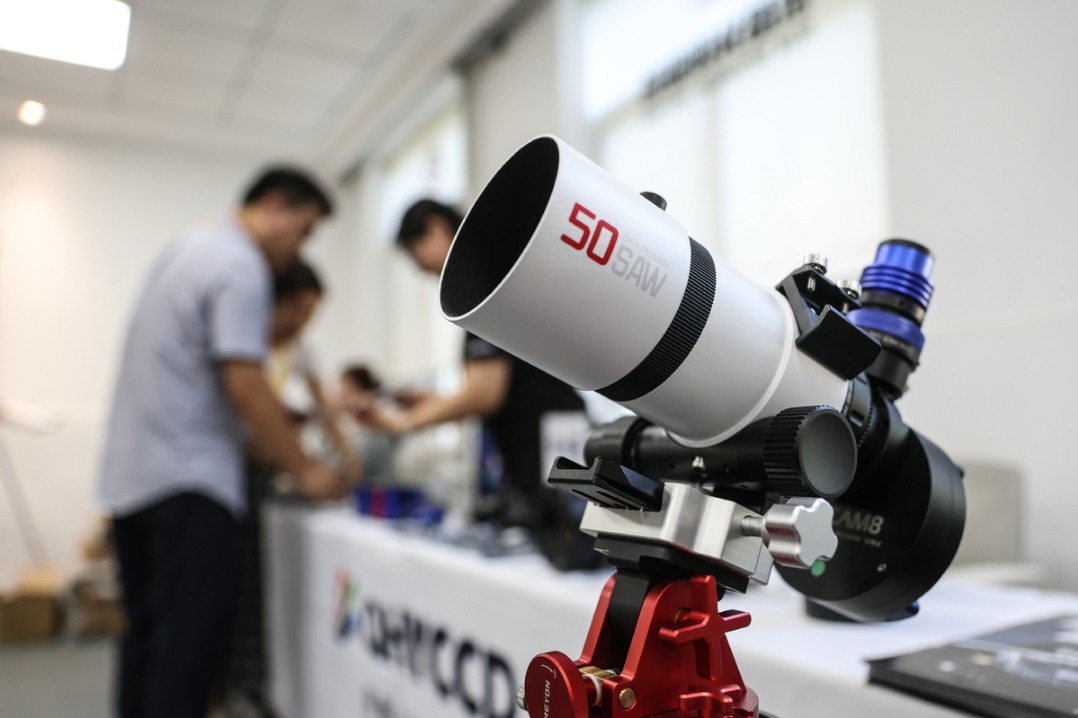Hong Kong eyes crown in supply chain shift


The Bay Area, milestone free trade pact gives HKSAR a definite edge in becoming a world digital sourcing services hub. Oswald Chan reports from Hong Kong.
Hong Kong ought to be looking at winning another accolade — making itself a world digital sourcing and supply chain services pivot — by taking full advantage of the Guangdong-Hong Kong-Macao Greater Bay Area's development and the historic signing of the world's biggest free trade pact, prominent industrialists and investment pundits say.
Building and strengthening supply chains and services to create more jobs is one of the key objectives of the Regional Comprehensive Economic Partnership, hailed as a milestone in bolstering market access.
It will be further aided by China's global supply chain network, as well as the advent of digitalization, amid China-United States trade frictions and the unrelenting spread of the COVID-19 pandemic.
Hong Kong, the experts urged, should take the initiative in supporting technology and innovation, upskilling the workforce by tapping its innovation ecosystem, capitalizing on the Chinese mainland's supply chain system and, not least, leveraging the potential benefits offered by the RCEP accord, which was signed in November last year by the 10-member Association of Southeast Asian Nations, China, Japan, South Korea, Australia and New Zealand with a combined 30 percent of the world's gross domestic product.
The escalating trade spat and COVID-19 are a wakeup call for multinational enterprises to realize the importance of boosting supply chain resiliency and efficiency. To diversify the risks of possible production disruptions, global manufacturers need to relocate or reshore part of their production lines.
Many industries see China as no longer the cheapest or the most cost-effective place to manufacture. Hence, rising costs, especially tariffs, and the exigent value of diversifying supply networks have accelerated the push to relocate manufacturing businesses from China.
Technology and innovation
Hong Kong's trade and logistics sector is already embracing technology and innovation to respond to the new business environment. New technologies have enabled businesses to operate more flexibly, fueled by advances in manufacturing, such as rapid prototyping, the emergence of new materials, and the proliferation of online platforms that help companies better find the products they need.
Sourcing companies based in the special administrative region have engaged startups and technology companies to beef up their capacities in applying artificial intelligence to add services, such as smart chatbots, search processes and virtual 3D fitting, to enhance customer experience.
According to a report in November last year by InvestHK — the SAR government's department geared to promoting foreign direct investment — and global auditing and advisory services firm KPMG, the number of startups in the city had soared by nearly 200 percent, from 1,065 to 3,184 between 2014 and 2019.
Cyberport and Hong Kong Science Park are nurturing the next generation of startups that help the research and development of the logistics industry, focusing on the future AI, analytical supply chain technologies and 3D virtual sampling.
"Digitalization is not just about logistics and supply chains. It's across multiple sectors. We see a lot emerging in e-commerce, such as digital platform businesses stepping up in merchandising as well," said Anson Bailey, KPMG China's partner and Asia-Pacific head of consumer and retail. "We also see it in education technology companies providing digital education to drive the business digitally."
He reckoned that Hong Kong has to ensure that companies are adapting new technologies to lure investments. Besides digitalization, Hong Kong has to ensure it can upskill and reskill the labor force in trade and logistics to attract the world's highest quality talents.
Stephen Phillips, director-general of investment promotion at InvestHK, said the SAR government is trying to draw global talents to focus on filling the gaps in the local workforce, such as data scientists and programmers. "This will ensure that talents can help technologies related to digitalization to expand expertise in the industry."
The mainland's resiliency as the preferred supply-chain network and the sealing of the RCEP accord are held as catalysts for Hong Kong to be transformed into a digital supply chain services hub in the Bay Area if the city can jump on the technology application bandwagon.
"Even if China has lost its appeal of low-cost, loosely-controlled manufacturing, it still enjoys many excellent infrastructural, economic and financial advantages that ASEAN countries could never replicate. Global manufacturers are less likely to uproot their heavily invested manufacturing infrastructure," reckoned Daniel Yip Chung-yin, chairman of the Federation of Hong Kong Industries.
- Joint China-Russia naval exercises begin off Vladivostok
- Fresh rainstorm warning issued for Tianjin
- Hainan Island Carnival opening ceremony lights up Haikou
- China's Hebei restores power, roads after heavy rains
- Global influencers explore beer city at Qingdao WCNA
- Heavy rainstorm leaves three dead, four missing in Hebei resort





































